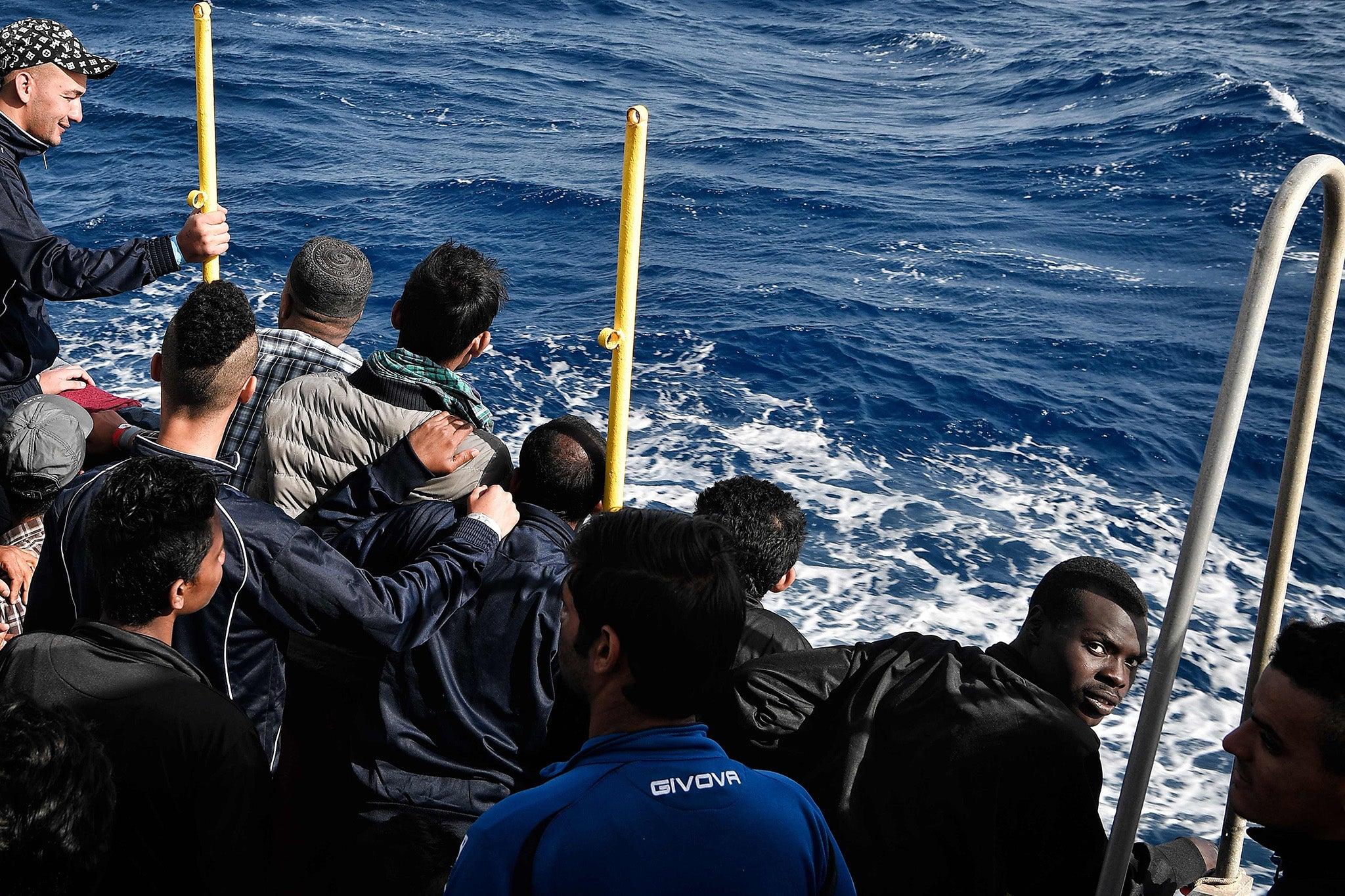Desperate refugees and migrants are still drowning in the Mediterranean – we need a compassionate approach
Editorial: Western bureaucracies often treat asylum seekers brutally and inhumanely, as the recent scandals about poor accommodation in dilapidated British ex-army barracks show

The 43 (or more) people who drowned in a shipwreck off the coast of Tunisia are, sadly, not the first refugees and migrants to drown in the Mediterranean on their journey to what they hope is a better life; and nor, realistically, will they be the last.
The calmer weather, the continuing activities of the people traffickers and the instability, war and poverty that afflicts so much of Africa and the Middle East will ensure that many more deaths and injuries will follow.
The imminent withdrawal of American and allied forces from Afghanistan and the arrival of Islamic State in the region around northeastern Nigeria will only add to the “push factors” that have been driving people from their homes. Like the waves of refugees fleeing Syria, Iraq, Somalia and Sudan, Libya and Eritrea, and elsewhere, before war and torture and persecution arrived they had little wish to turn up, penniless but hopeful, in Europe.
According to the Tunisian Red Crescent, the latest cargo of human misery set off from Zuwara, on Libya’s coast, carrying migrants from Egypt, Sudan, Eritrea and Bangladesh – a fairly typical pattern.
There are obviously no easy or rapid solutions to this pattern of migration, whether it is “economic” or not – and the line between refugees and economic migrants in a land with a collapsed economy, and a non-existent food and fuel supply, is somewhat academic.
A sense of perspective is a good starting point. It is often termed a crisis, which is it, but it gives the impression that the movements of people are growing at some exponential scale, which is inaccurate, and that nothing is being done to try and stem the flow and assess and assist those who do arrive, and return those who have no just claim for asylum – which is also not true.
Indeed, western bureaucracies often treat asylum seekers brutally and inhumanely, as the recent scandals about poor accommodation in dilapidated British ex-army barracks show.
Though much of the coverage of refugee movements focuses on crossings in the English Channel, the Mediterranean and the US-Mexico border, in reality, nations such as Jordan, Lebanon, Bangladesh, Turkey and Uganda are coping with many more.
As is often noted, in Europe it is only Germany and Sweden that have demonstrated much hospitality towards migrants, and have understood the long-term economic and social benefits they will bestow.
Slowing the supply of migrants to levels that are more manageable and less deadly means providing shelter in those states, such as Turkey, where they are being housed in usually poor conditions, which give them little incentive to go home when peace arrives.
It also means a more active western policy of helping to wind down local wars, or at least to stop arming the factions and helping them fight each other as proxies in power plays between the likes of Iran, Israel and Saudi Arabia. That, obviously, is easier said than done.
What the EU, Britain and other western nations can also do is, quite simply, rescue refugees. Most of the proposals that have emanated from the Home Office over many years are aimed at creating disincentives, stopping migrants from working for their living, pushing them into squalid homes and making sure that they and others contemplating a similar journey understand that Britain is a cold, unwelcoming, hostile environment. It hasn’t worked.
Now, ministers such as Priti Patel are trying to copy ideas from Australia, about forcibly pushing migrant vessels back to the sea, or dumping them in some remote offshore camps – violating human rights and the law of the sea to rescue those at risk of drowning. There can be little doubt that Ms Patel has been discussing such policies with her friend and adviser, former Australian premier Tony Abbott. They are murderous ideas.
Western nations need skilled and unskilled migrants to maintain their prosperity, to do the jobs the local folk can’t or won’t do, staff their public services and poorly paid occupations, clean, drive, and work in the fields. Because of demographic trends, there is a long-term shortage of labour, and, as we are witnessing, also a ready supply of young, healthy, energetic and determined people ready to come and do the jobs and make the UK a bigger, richer economy.
History is full of examples of refugees and their families who render huge services in their new homes, whether in science, the arts and entertainment, in medicine or, yes, on the football pitch.
Refugees also contribute in the arenas of politics and public service. It is perhaps worth mentioning the family origins of those who’ve been so vocal about “controlling borders”, such as Boris Johnson (Turkey), Nigel Farage (Huguenot French) and Ms Patel (Ugandan Asian). It is a side of the debate which is rarely heard, and it is costing lives.
Join our commenting forum
Join thought-provoking conversations, follow other Independent readers and see their replies
0Comments